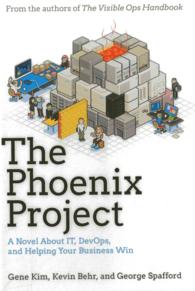Full Description
Presenting a critical approach to the study of public policy and policy analysis, this book offers a postpositivist foundation that challenges empiricist and technocratic approaches to policy studies. Critical Policy Inquiry draws on Jürgen Habermas's work on communicative action and deliberation, Michel Foucault's writings on discourse, and the epistemics of social constructivism.
Frank Fischer advances deliberative policy argumentation and the logic of practical reason, exploring how this can be used as a framework for interpreting the interaction of normative and empirical arguments in policy politics. He applies this approach to a diverse range of topics, including technocracy, policy expertise, deliberative democratic politics, interpretive policy analysis, post-truth, climate and Covid denialism, participatory governance, local and tacit knowledge, and the role of emotion in policy controversies. The book concludes with a look to transformative policy learning and the future of the field.
Connecting social and political theory with empirical research, this book is essential for students and scholars of public policy, politics, governance, public administration, and regulatory policy. Its practical, real-world applications will also be of value to policymakers worldwide.
Contents
Contents
Preface ix
PART I CRITICAL POLICY INQUIRY AND THE
ARGUMENTATIVE TURN
1 Introduction to critical policy inquiry 2
2 The public policy orientation: From technocratic expertise
to critical policy argumentation 25
3 The argumentative turn in critical policy analysis:
Practical reason and the logic of policy argumentation 45
4 Critical policy argumentation in Covid controversies:
From statistics to political values 65
PART II SOCIAL CONSTRUCTION AND
KNOWLEDGE POLITICS
5 Social constructivism and the politics of meaning:
Foundations of interpretive policy analysis 86
6 Social constructivism and post-truth: Climate denialism
and knowledge politics in policy argumentation 118
PART III CITIZEN PARTICIPATION IN
DELIBERATIVE POLICY PROCESSES
7 Confronting technocratic expertise: Citizen empowerment
and deliberative policy inquiry 134
8 Making governance participatory: Citizens and experts in
collaborative policy research 157
PART IV TRANSFORMATIVE LEARNING AND
CRITICAL POLICY EPISTEMICS
9 Critical policy inquiry and transformative learning:
Reflexive deliberation as problematization 177
Coauthored with Alan Mandell
10 Policy epistemics for critical policy inquiry: Notes on the
construction of knowledge and arguments in discursive politics 196
References 223






